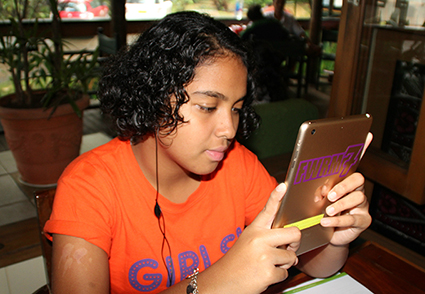
SUVA (ICAAD/Pacific Media Watch): Gender discrimination has affected sentence outcomes in more than 50 percent of sexual and gender-based violence cases in Pacific Island countries, says the International Center for Advocacy Against Discrimination (ICAAD) n Human Rights Day.
In a report on judicial sentencing practices of SGBV, including sexual assault and domestic violence cases, ICAAD revealed that the consideration of contentious factors, defined below, raised during the criminal case led to actual sentence reductions, undercutting the very function of the judicial system, which is to ensure accountability and justice.
A total of 908 sentencing records in gender-based violence cases, mainly between the years of 2000-2014 and involving seven Pacific countries (Fiji, Samoa, Solomon Islands, Tonga, Papua New Guinea, Kiribati, and Vanuatu) were analysed to determine whether contentious factors were considered, and if so, how they directly impacted sentencing.
There were 111 domestic violence (DV) cases, and 787 sexual assault (SA) cases reviewed.
Contentious factors, as defined by the authors of the report, are those that when used in mitigation by the court, discriminate against the victim on the basis of gender. Such discrimination may relate to gender stereotyping, rape myths, consideration of customary practices, or other factors that unjustly privilege the interests of the male perpetrator over the interest of the victim/ survivor.
Out of 90 percent of domestic violence cases where contentious factors were raised, 66 percent led to a reduction in sentencing.
For sexual assault cases, contentious factors were considered in 73 percent of cases and this led to a sentence reduction in 50 percent of the cases.
Alarming statistics
Importantly, where a combination of contentious factors were considered, perpetrators were four times more likely to receive no prison sentence than in cases where no contentious factors were considered.
Even more alarming was that 40 percent of victims were under 15 years of age, and 58 percent of the victims/survivors were under 18 years of age.
Hansdeep Singh, co-founder of ICAAD, points out that male supremacy has embedded gender inequality in the PICs, within the very systems that should be providing avenues for justice, redress, and protection.
“If one recognises the almost insurmountable obstacles a woman must face to obtain even a modicum of accountability in SGBV cases, it is a cruel final act when the judiciary fails to recognize the true gravity of the crime and decides to reduce or suspend sentences based on gender stereotypes and customary (both formal and informal) forms of reconciliation,” he said.
“Though we have the utmost of respect for the importance of customary practices in the lives of Pacific Islanders, what we are advocating is that in a narrow subset of cases, domestic violence and sexual assault, that the court refrain from recognising customary reconciliation as a form of sentence reduction.”
Singh said that by doing so, the courts would acknowledge the inherent power imbalance and societal pressure that often accompanies such customary practices.
Human rights lawyer at DLA Piper, Emily Christie expressed that “the judicial system is a small but crucial element in the effort to combat gender based violence. Unfortunately, the gender power-imbalances and discrimination that cause violence against women and girls also prevent women from accessing safety and justice through the legal system.
"It is only through identifying and understanding how such discrimination affects our judicial system, by collating hard evidence on judicial decision-making, that we can start to eliminate bias and bring perpetrators to justice.”
This work is licensed under a Creative Commons Attribution-NonCommercial 3.0 New Zealand Licence.




